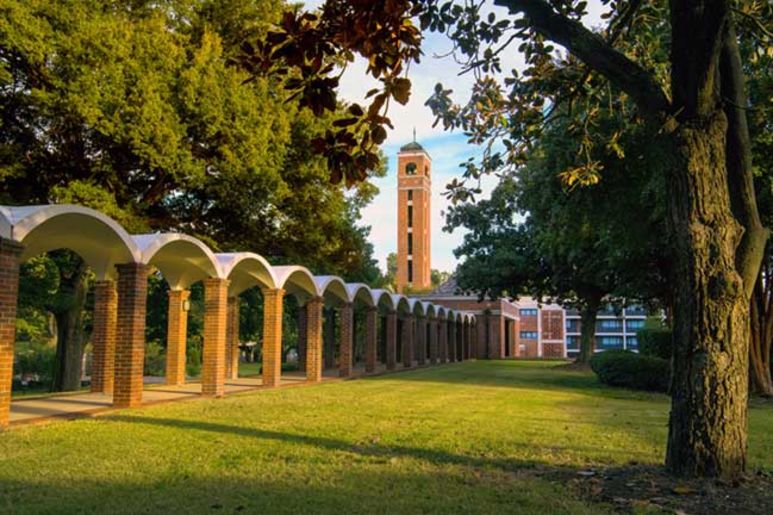
Neuroscience
The Neuroscience program integrates coursework in neural structure and function, cognition, behavior, and data analysis, providing students with both theoretical knowledge and practical research experience.
About the Bachelor of Science in Neuroscience
CBU’s neuroscience program combines academic excellence, research opportunities, and career-focused learning in a supportive environment, making it the ideal choice for students looking to make an impact in medicine, mental health, research, and biotechnology.
The neuroscience program aligns with Memphis’ growing focus on healthcare, biomedical research, and mental health services. The city is home to institutions like St. Jude Children’s Research Hospital, the University of Tennessee Health Science Center, and Methodist Le Bonheur Healthcare, all of which contribute to cutting-edge medical and neuroscience research. Students in the program have the potential to engage in internships, collaborations, and research partnerships with these institutions and others, gaining real-world experience while contributing to the local healthcare ecosystem.
If you’re ready to explore the complexities of the brain and gain real-world experience, CBU’s Neuroscience Program is the perfect place to start!
What You’ll Study
The degree program requires a total of 122 credit hours, consisting of general education and major courses. Students engage in coursework across multiple disciplines, including biology, psychology, and chemistry, to gain a broad understanding of neuroscience and will choose one of two tracks — Cognitive/Behavioral (for psychology, mental health, cognitive neuroscience, or human behavior studies) or Molecular/Cellular/Systems (for those interested in medicine, biotech, or lab research), which allow them to focus their interests within the broad field of neuroscience. Additional free electives allow students to really tailor the major to their interests, including completing a minor or pre-professional (e.g., pre-health, pre-med) courses.
View the BS in Neuroscience Course RequirementsResearch Opportunities
The program emphasizes hands-on laboratory work and requires students to participate in original research, fostering critical thinking and problem-solving skills. Research opportunities include projects in neurobiological data science, neurogenetics, psychophysiology and cognitive neuroscience, as well as cognitive and behavioral studies, and biotechnology.
Practical Skill Development
Students in the program build a diverse set of skills, combining scientific research, critical thinking, data analysis, and professional communication. Key skills include:
- Lab and Research Skills – Conducting original research, using neuroscience equipment, and applying biochemical and genetics techniques.
- Critical Thinking and Problem-Solving – Evaluating research, troubleshooting experiments, and applying neuroscience to real-world issues.
- Data Analysis – Using statistics and software to interpret brain and behavioral data.
- Communication and Professionalism – Presenting research, writing reports, and explaining complex concepts.
- Collaboration and Teamwork – Working with faculty, healthcare professionals, and peers on research and community initiatives.
These skills prepare students for careers in medicine, research, biotechnology, healthcare, and cognitive sciences, while also equipping them for graduate and professional programs in neuroscience, psychology, and medical fields.
Cognitive Neuroscience Lab
CBU is internationally recognized for engaging undergraduate students in cognitive neuroscience training and research. Our Cognitive Neuroscience Lab is unique to the Tennessee region, providing you opportunities to design studies; analyze data; present research at regional, national, and international conferences; and co-author articles.
With support from the National Science Foundation, we’ve outfitted our lab with equipment such as the Brain Vision actiCHamp system, which allows us to learn about common physiological signals that can be used to study a subject’s health and well-being. Our psychology faculty members work to foster innovative lab work, embracing the difficulties students meet during research to empower them to lead change.




